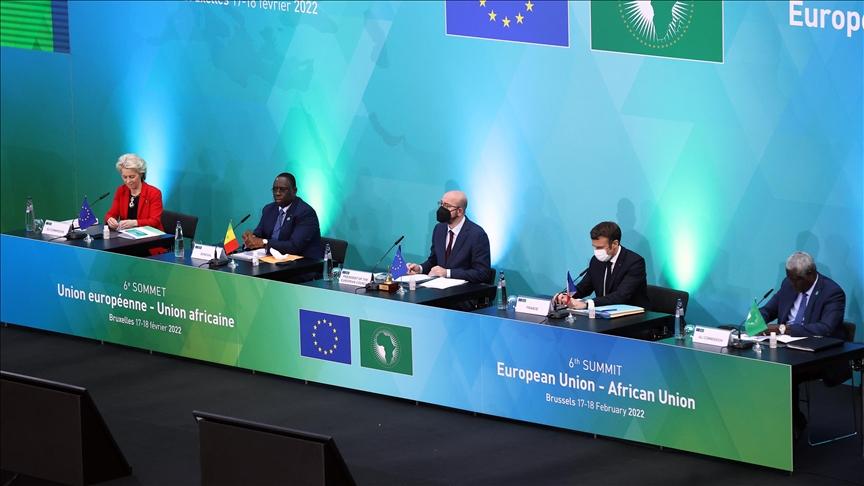The European Union (EU) and Nigeria have enjoyed robust trade and bilateral relations since the formulation of this lucrative partnership, and remains its most important trading partner for oil and non-oil exports. In cognizance of Nigeria’s strategic importance as Africa’s most populous nation, and one of the largest economies; the EU’s cooperation with the country aims to enhance growth and stability to achieve social equity, hence their partnership has been rooted in shared values and interests since inception. In addition, Nigeria is also a key beneficiary of the EU’s Foreign Direct Investment (FDI).
To boot, the EU has recently renewed its commitment, pledging to continue to pursue with increased vigour, its bilateral engagement and friendship with Nigeria I n order to deliver better and to make the partnership more fruitful. This comes after the trade volume between the European Union and Nigeria, increased by 25.8 per cent to peak at €28.7bn in 2021.The EU’s imports from Nigeria stood at €17.5bn, whilst exports were valued at €11.2bn, striking a trade balance at €6.4bn in favour of Nigeria. The EU is the main export market for Nigeria’s transformed products such as fisheries, agribusiness and textiles whilst Nigeria’s exports to the EU consist mainly of fuels and food products. Nigeria’s imports from the EU comprise of food products, fuels, machinery, chemicals and pharmaceutical products.
The EU delegation is responsible for dialogue with Nigeria and Economic Community of West African States (ECOWAS) authorities, investors and civil society on a wide spectrum of matters affecting bilateral, regional and multilateral trade issues such as the advocacy of regional and international trade as a tool for development, identification of bottlenecks to investments and the region’s economic integration and intra-regional trade through the EU-West Africa Economic Partnership Agreement (EPA).
Speaking at a press briefing during the recently passed 2022 Europe Day celebration, themed ‘Peace, Cooperation and Unity’ held at the EU Residence in Nigeria’s capital Abuja the head of the EU delegation to ECOWAS, Ambassador Samuela Isopi, stated that the EU and Nigeria’s recent launch of a Joint Ministerial Roadmap, and of a seven-year Multiannual Indicative Programme for Nigeria with a goal to consolidate extant gains of the partnership, whilst reaffirming EU’s commitment to offer long-term support aligned to its shared priorities, values and interests with Nigeria.
Giving reference to a statement issued during the celebration by the Press Officer of the EU delegation, Modestus Chukwulaka, the 2021-2027 target projects of the Multiannual Indicative Programme for Nigeria reinforce the EU’s bilateral cooperation with Nigeria in three focal areas of Green and Digital Economy, Governance, Peace and Migration and Human Development.
The EU is working with its member states, the European Investment Bank and other EU development finance institutions in the implementation of the agreed priorities and joint vision as Team Europe. “The EU remains Nigeria’s biggest trading partner, accounting for 20.9 per cent of Nigeria’s trade with the world, first investor, top donor of humanitarian and development aid, as well as the biggest diplomatic network,” ambassador Isopi noted. She added that the EU and Nigeria have ramped up collaborations to redress existing hurdles. Furthermore, she referred to the partnership as that of equals, highlighting the outstanding accomplishments registered in recent times as the two bolstered collaborations to address issues of common concerns.
“The EU has been relentless in providing the required support in promoting peace and security, human rights and freedoms, democratic governance and rule of law and decent living. Together with its member states, the EU is the biggest donor of Covid-19 vaccines to Nigeria. Hitherto, the bloc has donated 20 million doses which translates to 61 per cent of all donated vaccines received by Nigeria through the COVAX facility,” Isopi noted. Moreover, the bloc is Nigeria’s first partner in FDI, with EU companies and the Nigerian business partners, contributing to the country’s economic growth, wealth generation and job creation.
Moreover, Isopi pledged EU’s commitment to create a conducive environment for the private sector to thrive, and contribute to Nigeria’s economic development. In reiteration, she revealed that among the plans to bolster trade and their bilateral relationship, is the EU-Nigeria Business Forum, themed ‘Nigeria and the new world economy’, organized in partnership with the Ministry of Industry, Trade and Investment, slated between June 30 and July 1st 2022 in Lagos, Nigeria. She noted that the forum will offer an assessment platform of the EU’s involvement in Nigeria’s agricultural sector, and also address challenges and opportunities relating to doing business in Nigeria.
In addition, she highlighted the bloc’s commitment towards restoring peace to the north-east region of the country, by intensifying counter-terrorism and violent extremism efforts, through its multinational joint task force thereby fostering peace-building. Nigeria remains the only country in West Africa that has not signed the ‘Everything But Arms’ scheme, which is a trade preferential scheme adopted in 2001, granting full duty-free and quota-free access to the least developed countries (LDCs) for all their exports, except arms and ammunition.
There have been numerous concerns on whether the EPA deal benefits the EU more than it does Africa. On one hand, it gives Europe deeper access to African markets but simultaneously, ensures EU agricultural subsidies impact African farmers negatively. For instance in the case of wheat and poultry production and the dairy industry whereby subsidy-driven surpluses of European milk are powdered and sent to Africa, further crippling the sector. In reiteration, agriculture is a lucrative sector in the continent and more than half of Africans work in the sector yet it remains a net food importer, despite possessing the most underutilized arable land in the world.
Into the bargain, at the top of the value chain, EPA’s premature trade liberalization demands have put nascent manufacturers out of business thereby impeding employment creation. These are some of the reasons why Nigeria has hitherto refused to sign the EPA for West Africa as it would further jeopardize the country’s industrialization process and hamper job creation among the youth.
The EU’s development cooperation with Nigeria focuses on three key sectors: economic, social and governance. The economic sector prioritizes actions to increase production and distribution of electricity, improve economic competitiveness and diversification away from oil, promote development of renewable energy and strengthening public finance systems at state and federal levels. The governance sector dwells on strengthening democracy, managing migration more effectively, fighting against corruption, human and drug trafficking. The social sector focuses on improving access to quality primary healthcare and water and sanitation whilst reinforcing livelihoods. Currently, the EU seeks to implement new instruments of engagement with the private sector aimed at creating jobs, growing an inclusive economy and generating wealth and prosperity.




